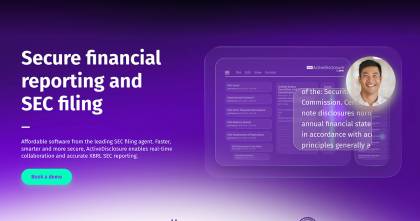What Is SEC Rule 16b-3?
SEC Rule 16b-3 is part of the Securities Exchange Act and specifically falls under Exchange Act Section 16(b). It was created to provide exemptions from the short swing profit rule, which requires certain insiders to return any profits made from buying and selling issuer equity securities within a six-month period. This provision helps companies maintain legitimate executive compensation programs, such as equity-based incentive awards, without unintentionally triggering insider trading concerns.
Rule 16b-3 is one of several exemptions within the Exchange Act, alongside related provisions like Rule 16b-1, Rule 16b-5, Rule 16b-6, and Rule 16b-7. It is particularly important for transactions involving equity security grants, stock options, and other forms of derivative security arrangements between the issuer and insiders.
Who Is Covered Under Rule 16b-3?
The rule applies to insiders, including directors, executive officers, and anyone who beneficially owns more than 10% of a company’s registered equity securities. Transactions between these insiders and the issuer are the focus, especially when they involve:
- Automated preparation and submission of Forms 3, 4, and 5 with direct EDGAR access
- Tracking and reporting for equity security and derivative security transactions
- Support for discretionary transactions, approvals, and plan-based awards
- Integrated workflows that align with corporate governance best practices
This definition of insiders extends to certain publicly traded entities, such as a Business Development Company, which are also subject to Section 16 rules when they meet the criteria under the Exchange Act.
The goal is to allow compensation-related transactions while reducing unnecessary restrictions for issuers and their leadership. In many cases, plans are also structured with Internal Revenue Code considerations in mind, ensuring tax efficiency alongside compliance.
What Transactions Are Exempt Under Rule 16b-3?
Determining which transactions qualify for an exemption under Rule 16b-3 is essential for avoiding unintended exposure to the short swing profit rule. These exemptions are designed to allow legitimate corporate compensation practices, particularly those involving equity security arrangements between the issuer and its insiders, to proceed without triggering disgorgement obligations.
By clearly defining which types of grants, awards, and share transfers are permissible, Rule 16b-3 helps balance the objectives of the Securities Exchange Act, promoting transparency and deterring insider trading, with the practical needs of executive compensation and corporate governance.
Exempt transactions generally include:
- Grants or awards of derivative securities such as stock options or stock appreciation rights
- Restricted stock or performance share grants
- Sale of shares back to the issuer for tax withholding or exercise cost purposes
- Other equity security transfers under approved compensation plans
To qualify, these transactions must meet certain approval requirements under Rule 16b-3d, Rule 16b-3e, or Rule 16b-3f, depending on the specific structure. They often involve an exchange between the insider and the issuer, rather than open-market trading.
Approval and Compliance Requirements
Before any transaction can qualify for an exemption under Rule 16b-3, it must clear specific procedural hurdles. These requirements are designed to ensure transparency, uphold corporate governance standards, and reduce the risk of regulatory challenges.
The approval process isn’t just a formality. It’s a safeguard that demonstrates the transaction was executed in good faith, aligns with the company’s equity compensation policies, and meets the criteria set by the Securities Exchange Act. By securing the right approvals and adhering to detailed reporting requirements, companies can maintain exemption status while avoiding the pitfalls of short swing profit rule violations.
Approval is central to the exemption process. To qualify, the transaction must be approved in advance by one of the following:
- The full board of directors
- A committee composed solely of non-employee directors
- A majority of the company’s shareholders
Even if exempt under Rule 16b-3, transactions still have reporting requirements under the Exchange Act. This means timely filings on SEC Forms 3, 4, and 5 to disclose details of the transaction. Documentation is critical. Companies must retain board resolutions, committee approvals, and any plan details supporting the exemption. Proper recordkeeping ensures both compliance and protection from regulatory challenges.
Common Pitfalls and Legal Risks
If a transaction does not meet the criteria outlined in Rule 16b-3, the short swing profit rule applies, requiring insiders to disgorge any profits. This can lead to enforcement actions, shareholder lawsuits, and reputational damage.
Common mistakes include:
- Failing to obtain the correct type of approval under Rule 16b-3d, Rule 16b-3e, or Rule 16b-3f: Companies sometimes move forward with a transaction assuming general board consent is enough, when the rule actually requires a specific type of approval, such as from a committee of non-employee directors or a majority of shareholders. This oversight can nullify the exemption and trigger short swing profit rule liability.
- Incomplete documentation for discretionary transactions or equity grants: Discretionary transactions, such as certain option exercises or stock sales, require clear, written records of approval and plan terms. Missing meeting minutes, board resolutions, or plan details can make it difficult to prove compliance if challenged by the SEC.
- Misclassification of a derivative security or underlying security in reports: Confusion over whether an instrument qualifies as a derivative security—such as stock options, warrants, or stock appreciation rights—or how to identify the correct underlying security can lead to inaccurate reporting. Misclassification often results in amended filings or enforcement scrutiny.
- Late or inaccurate Form 4 filings: Even when an exemption applies under Rule 16b-3, the transaction still triggers reporting requirements under the Exchange Act. Filing Form 4 after the two-business-day deadline or omitting required details can lead to penalties and raise red flags for regulators and shareholders.
Compliance teams must also be mindful of how related rules, such as Rule 16b-1, Rule 16b-5, Rule 16b-6, and Rule 16b-7, interact with Rule 16b-3 exemptions.
Protecting Compliance While Enabling Strategic Compensation
SEC Rule 16b-3 is a crucial part of the regulatory framework under the Securities Exchange Act. It allows issuers to provide meaningful equity-based compensation to insiders without triggering the short swing profit rule, provided that transactions meet strict approval and reporting requirements.
By understanding related provisions such as Rule 16b-1, Rule 16b-5, Rule 16b-6, Rule 16b-7, and the specific subsections of Rule 16b-3, companies can better manage both legal risk and shareholder expectations. Leveraging technology, governance expertise, and proactive planning ensures that insider transactions remain compliant while supporting the company’s broader compensation strategy.
Leveraging Expert Support and Technology Solutions
Section 16 compliance requires precision. Automated tools and professional guidance can help issuers and insiders manage these complex reporting requirements efficiently.
DFIN’s section 16 reporting software ActiveDisclosure offers:
- Automated preparation and submission of Forms 3, 4, and 5 with direct EDGAR access
- Tracking and reporting for equity security and derivative security transactions
- Support for discretionary transactions, approvals, and plan-based awards
- Integrated workflows that align with corporate governance best practices
By leveraging these solutions, companies reduce the risk of missed deadlines or incomplete filings, especially when dealing with complex insider trading rules and Exchange Act Section 16 requirements. Learn more about how a DFIN partnership can help support your organization.

